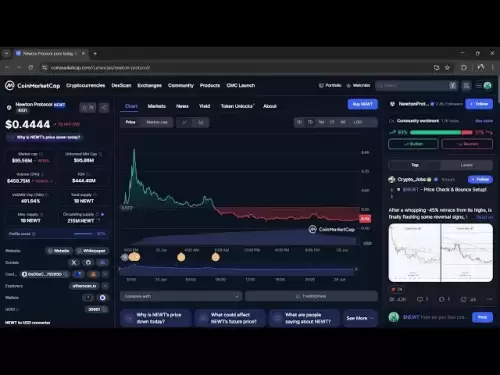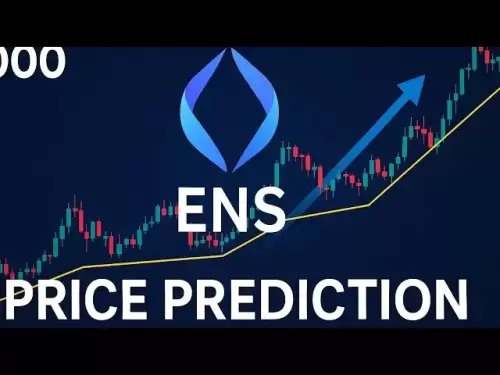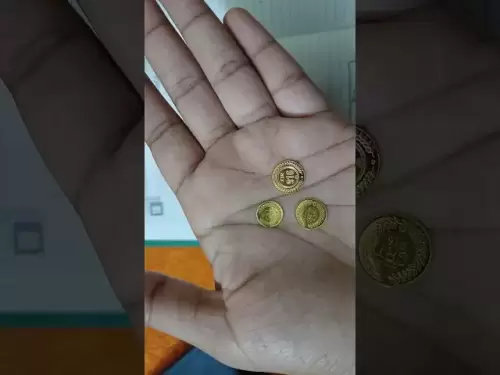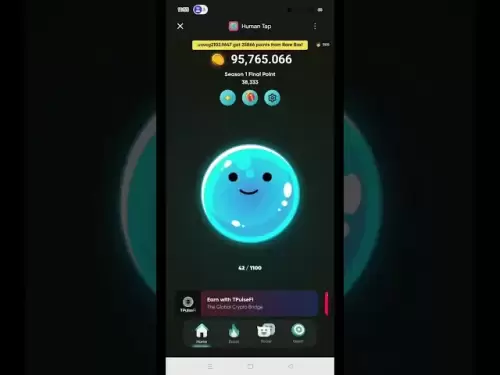-
 Bitcoin
Bitcoin $107,100.2009
-0.67% -
 Ethereum
Ethereum $2,438.7946
0.00% -
 Tether USDt
Tether USDt $1.0000
-0.04% -
 XRP
XRP $2.1506
-2.64% -
 BNB
BNB $643.4261
-0.64% -
 Solana
Solana $142.8432
-3.12% -
 USDC
USDC $0.9996
-0.02% -
 TRON
TRON $0.2713
-0.28% -
 Dogecoin
Dogecoin $0.1598
-4.15% -
 Cardano
Cardano $0.5553
-4.61% -
 Hyperliquid
Hyperliquid $37.4949
-3.45% -
 Bitcoin Cash
Bitcoin Cash $494.8287
2.75% -
 Sui
Sui $2.6305
-7.06% -
 Chainlink
Chainlink $13.0534
-1.94% -
 UNUS SED LEO
UNUS SED LEO $8.9960
0.02% -
 Stellar
Stellar $0.2361
-3.87% -
 Avalanche
Avalanche $17.2273
-4.80% -
 Toncoin
Toncoin $2.8106
-3.27% -
 Shiba Inu
Shiba Inu $0.0...01130
-3.71% -
 Litecoin
Litecoin $84.4367
-0.99% -
 Hedera
Hedera $0.1442
-6.40% -
 Monero
Monero $314.6218
-1.70% -
 Dai
Dai $0.9998
-0.01% -
 Ethena USDe
Ethena USDe $1.0000
-0.02% -
 Polkadot
Polkadot $3.2923
-4.40% -
 Bitget Token
Bitget Token $4.4284
0.60% -
 Uniswap
Uniswap $6.8367
-4.04% -
 Pi
Pi $0.5559
-13.86% -
 Pepe
Pepe $0.0...09257
-8.51% -
 Aave
Aave $254.2527
-3.41%
How to read CoinEx contract K-line
Analyzing CoinEx contract K-lines empowers traders to uncover market trends, recognize patterns, and devise data-driven trading strategies that maximize profitability and minimize risk.
Nov 29, 2024 at 09:50 am

Navigating CoinEx Contract K-lines: A Comprehensive Guide
CoinEx contract K-lines provide crucial insights into the price fluctuations of cryptocurrency assets, empowering traders with data-driven decision-making capabilities. This comprehensive guide will walk you through the essential steps involved in understanding and reading CoinEx contract K-lines, enabling you to harness their analytical potential.
1. Understanding K-line Basics
K-lines, also known as candlesticks, are graphical representations of price movements over time. Each candle encompasses four key data points:
- Open: The price at which the asset opened during the specified time period.
- Close: The price at which the asset closed during the specified time period.
- High: The highest price reached by the asset during the specified time period.
- Low: The lowest price reached by the asset during the specified time period.
The body of the candle represents the range between the open and close prices. Green candles indicate an increase in price (close > open), while red candles indicate a decrease in price (close < open).
2. Choosing the Right Time Frame
CoinEx contract K-lines are available in various time frames, including 1 minute, 5 minutes, 15 minutes, 1 hour, 4 hours, and 1 day. The choice of time frame depends on your trading strategy and risk tolerance. Smaller time frames provide more granular data for short-term trading, while larger time frames offer a broader perspective for long-term investment decisions.
3. Analyzing Candle Patterns
Candle patterns are specific formations in the arrangement of K-line bodies and shadows. By recognizing these patterns, traders can identify potential trading opportunities and sentiment shifts in the market. Common candle patterns include:
- Doji: A candle with an open, high, low, and close that are approximately equal, indicating indecision in the market.
- Bullish Engulfing: A green candle that completely engulfs the previous red candle, indicating a potential reversal in trend.
- Bearish Engulfing: A red candle that completely engulfs the previous green candle, indicating a potential downtrend.
4. Combining Multiple K-lines
Technical traders often utilize multiple K-line time frames and indicators to gain a comprehensive understanding of market behavior. Comparing the trends and patterns on different time frames can help identify longer-term trends and short-term trading signals. Additionally, indicators such as moving averages and stochastic oscillators can complement K-line analysis to provide additional insights.
5. Identifying Support and Resistance Levels
Support and resistance levels are significant price points that indicate potential areas of reversal in trend. Support levels are identified as areas where prices have bounced back repeatedly, while resistance levels indicate prices where further gains have been limited. Identifying these levels can help traders anticipate market reversals and plan their trades accordingly.
6. Managing Risk
K-line analysis is a valuable tool for risk management in contract trading. By studying past price movements, traders can identify potential areas of volatility and adjust their strategies accordingly. Stop-loss orders can be implemented to limit potential losses, while take-profit orders can maximize gains.
7. Staying Up-to-Date with Market News
External market events and news can significantly impact cryptocurrency prices. Traders should stay abreast of the latest developments in the industry, including regulatory changes, macroeconomic factors, and news from major exchanges or influencers. This information can inform their trading decisions and enhance their risk management strategies.
8. Practicing with Demo Accounts
Before implementing K-line analysis into live trading, traders can practice their skills using demo accounts provided by CoinEx. These accounts allow traders to simulate trading strategies and gain practical experience without risking capital. By familiarizing themselves with the platform and trading tools, traders can minimize the potential risks associated with live trading.
Disclaimer:info@kdj.com
The information provided is not trading advice. kdj.com does not assume any responsibility for any investments made based on the information provided in this article. Cryptocurrencies are highly volatile and it is highly recommended that you invest with caution after thorough research!
If you believe that the content used on this website infringes your copyright, please contact us immediately (info@kdj.com) and we will delete it promptly.
- Coinbase, Wrapped Tokens, and Base Network: A New Era for Cross-Chain DeFi?
- 2025-06-26 21:10:14
- BNB Price Check: Can Binance Coin Reserves Fuel a Rally to $800?
- 2025-06-26 20:25:12
- PEPD, Memes, and Ethereum: A New Era of Meme Utility?
- 2025-06-26 20:25:12
- Pepe Dollar vs. Pepecoin: The Meme Coin Evolution
- 2025-06-26 20:50:12
- Fartcoin, Coinbase, and Crypto Mortgages: What in the World?
- 2025-06-26 20:50:12
- Pi Coin, AI Speculation, and Pi2Day 2025: What's the Buzz?
- 2025-06-26 21:30:12
Related knowledge
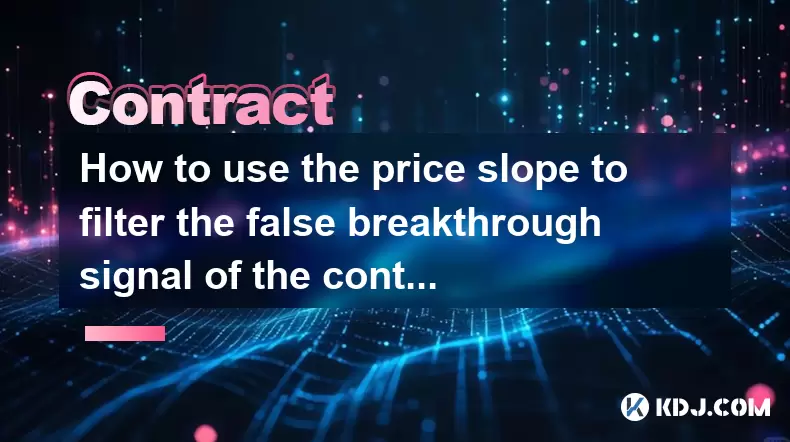
How to use the price slope to filter the false breakthrough signal of the contract?
Jun 20,2025 at 06:56pm
Understanding the Concept of Price Slope in Contract TradingIn contract trading, especially within cryptocurrency derivatives markets, price slope refers to the rate at which the price changes over a specific time period. It helps traders assess the strength and sustainability of a trend. A steep slope may indicate strong momentum, while a shallow slope...
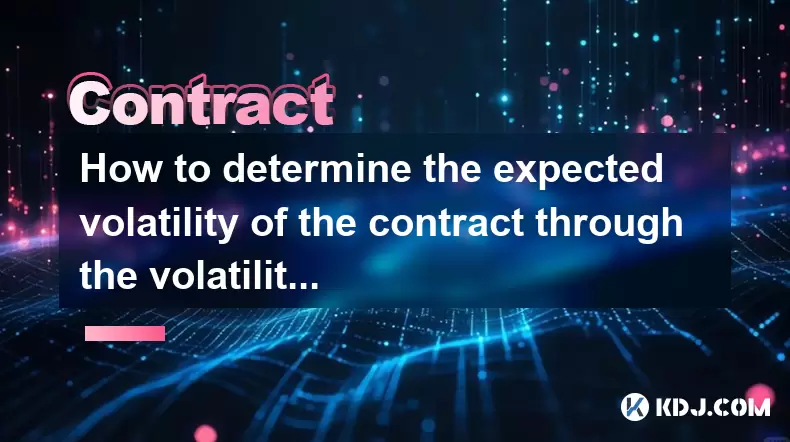
How to determine the expected volatility of the contract through the volatility cone?
Jun 19,2025 at 12:28pm
Understanding the Basics of Volatility in Cryptocurrency ContractsIn the realm of cryptocurrency trading, volatility is a key metric that traders use to assess potential risk and reward. When dealing with futures contracts, understanding how volatile an asset might become over time is crucial for position sizing, risk management, and strategy developmen...
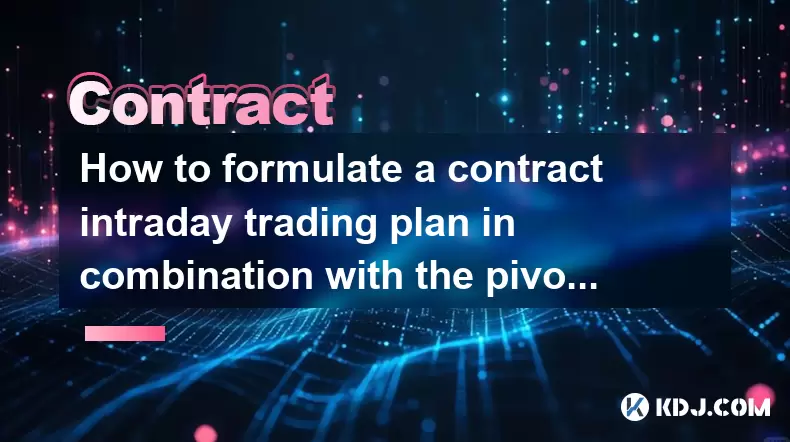
How to formulate a contract intraday trading plan in combination with the pivot point system?
Jun 21,2025 at 03:42pm
Understanding the Basics of Pivot Points in Cryptocurrency TradingPivot points are technical analysis tools used by traders to identify potential support and resistance levels. These levels are calculated using the previous day's high, low, and closing prices. In the context of cryptocurrency trading, where markets operate 24/7, pivot points help trader...
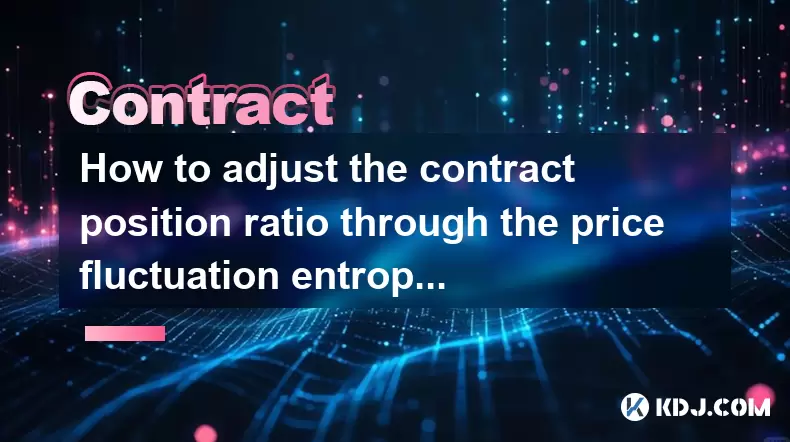
How to adjust the contract position ratio through the price fluctuation entropy?
Jun 22,2025 at 11:42am
Understanding Price Fluctuation Entropy in Cryptocurrency ContractsIn the world of cryptocurrency futures trading, price fluctuation entropy is a relatively new concept used to measure market volatility and uncertainty. It derives from information theory, where entropy refers to the degree of randomness or unpredictability in a system. In crypto contrac...
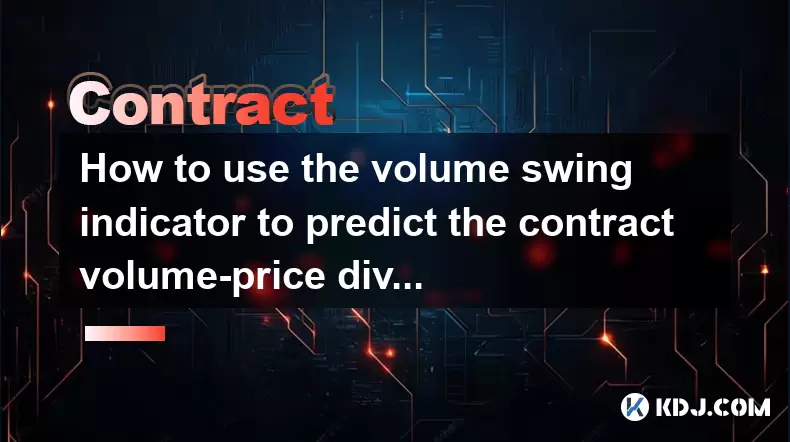
How to use the volume swing indicator to predict the contract volume-price divergence?
Jun 18,2025 at 11:42pm
Understanding the Volume Swing IndicatorThe volume swing indicator is a technical analysis tool used primarily in cryptocurrency trading to evaluate changes in volume over time. Unlike price-based indicators, this metric focuses solely on trading volume, which can provide early signals about potential market reversals or continuations. The key idea behi...
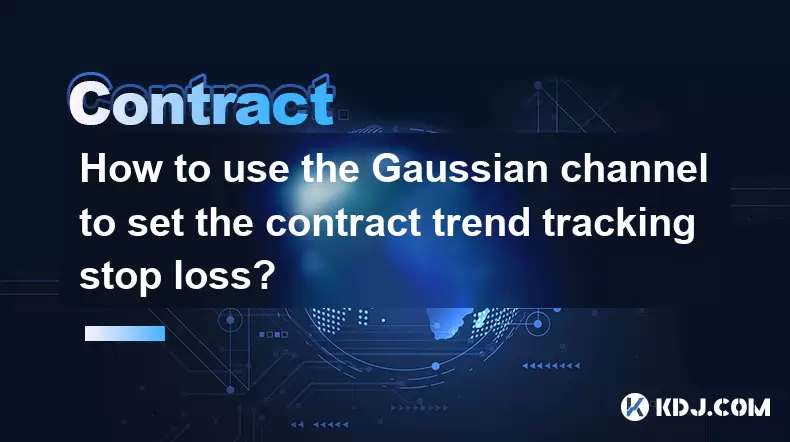
How to use the Gaussian channel to set the contract trend tracking stop loss?
Jun 18,2025 at 09:21pm
Understanding the Gaussian Channel in Cryptocurrency TradingThe Gaussian channel is a technical indicator used primarily in financial markets, including cryptocurrency trading, to identify trends and potential reversal points. It is based on statistical principles derived from the normal distribution, commonly known as the Gaussian distribution or bell ...

How to use the price slope to filter the false breakthrough signal of the contract?
Jun 20,2025 at 06:56pm
Understanding the Concept of Price Slope in Contract TradingIn contract trading, especially within cryptocurrency derivatives markets, price slope refers to the rate at which the price changes over a specific time period. It helps traders assess the strength and sustainability of a trend. A steep slope may indicate strong momentum, while a shallow slope...

How to determine the expected volatility of the contract through the volatility cone?
Jun 19,2025 at 12:28pm
Understanding the Basics of Volatility in Cryptocurrency ContractsIn the realm of cryptocurrency trading, volatility is a key metric that traders use to assess potential risk and reward. When dealing with futures contracts, understanding how volatile an asset might become over time is crucial for position sizing, risk management, and strategy developmen...

How to formulate a contract intraday trading plan in combination with the pivot point system?
Jun 21,2025 at 03:42pm
Understanding the Basics of Pivot Points in Cryptocurrency TradingPivot points are technical analysis tools used by traders to identify potential support and resistance levels. These levels are calculated using the previous day's high, low, and closing prices. In the context of cryptocurrency trading, where markets operate 24/7, pivot points help trader...

How to adjust the contract position ratio through the price fluctuation entropy?
Jun 22,2025 at 11:42am
Understanding Price Fluctuation Entropy in Cryptocurrency ContractsIn the world of cryptocurrency futures trading, price fluctuation entropy is a relatively new concept used to measure market volatility and uncertainty. It derives from information theory, where entropy refers to the degree of randomness or unpredictability in a system. In crypto contrac...

How to use the volume swing indicator to predict the contract volume-price divergence?
Jun 18,2025 at 11:42pm
Understanding the Volume Swing IndicatorThe volume swing indicator is a technical analysis tool used primarily in cryptocurrency trading to evaluate changes in volume over time. Unlike price-based indicators, this metric focuses solely on trading volume, which can provide early signals about potential market reversals or continuations. The key idea behi...

How to use the Gaussian channel to set the contract trend tracking stop loss?
Jun 18,2025 at 09:21pm
Understanding the Gaussian Channel in Cryptocurrency TradingThe Gaussian channel is a technical indicator used primarily in financial markets, including cryptocurrency trading, to identify trends and potential reversal points. It is based on statistical principles derived from the normal distribution, commonly known as the Gaussian distribution or bell ...
See all articles




















